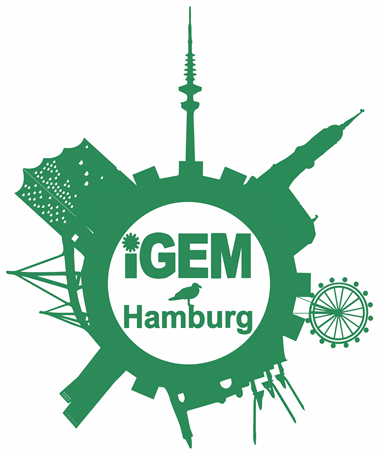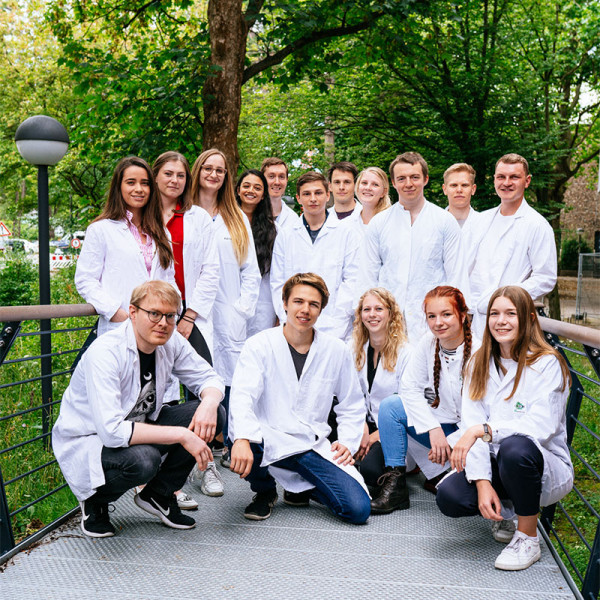iGEM (or international Genetically Engineered Machine) is a non-profit, student competition for synthetic biology. Synthetic biology combines methods from life sciences with construction principles from engineering. Every year, the competition inspires thousands of students to work together in teams and push the boundaries of synthetic biology by tackling everyday issues facing the world. Students from different scientific backgrounds build, test, and measure a system of their own design using interchangeable biological parts and standard molecular biology techniques. The aim is to use biological materials to construct specific systems that are useful for society.
Due to different professional backgrounds, the participating students can learn from each other across discipline boundaries. The talents and abilities of each individual are thereby optimally used. In addition to the development and implementation of the projects, they are involved in ethics, biosafety, social justice, and education. The teams link up and help each other through international cooperation. From generating project ideas to procuring the laboratory tools and sponsors, the students organize themselves independently. Each year, the teams present their projects at the Giant Jamboree in Boston, where the most innovative projects are awarded prestigious prizes under strict evaluation criteria. We at Biomol see a great opportunity for young students in iGEM and support the team of the University of Hamburg for the 3rd time in succession.
iGEM’s Most Fascinating Projects: A Story of Success
iGEM projects often serve as proof of concept and prototype testing, which is an ideal basis for dissertation projects and start-ups. Over 150 start-ups have already been founded based on iGEM projects. Here is a list of some of the most fascinating projects:
- In 2019, the team from the University of Copenhagen won the iGEMers Prize for "Ovulaid," a hormone-sensitive chewing gum that enables women to identify their fertile phase.
- In 2018, the team from the University of Hamburg won a gold medal for the malaria mosquito trap "S.H.I.E.L.D.” (Sustainable Human-Imitating Elimination & Lure Device) and was able to obtain a patent.
- In 2016, a silver medal and the iGEMer's Prize went to Team Hamburg for the project "Finding Clamydory," a diagnostic method for detecting Chlamydia trachomatis.
- In 2015, the team from the University of Israel worked on "The Boomerang System," a CRISPR/Cas9-based system that enables the detection and depletion of cancer cells.
- In 2013, the team from the University College London developed the "Darwin Toolbox," a safe, user-friendly, and affordable biotechnology laboratory in a 13” x 11” box. This later developed into the successful start-up company Bento Lab.
Team Hamburg’s Current Project

This year's iGEM team from Hamburg has concentrated on the problem of pathogen infestation by fungi, bacteria, or viruses in agriculture. Many of the pathogens interact with the cellular machinery of the crop plant. Against this mechanism, a targeted suppression of pathogenic gene expression is to be developed. The project could reduce crop losses without relying on harmful pesticides.
A new and innovative mechanism should achieve this goal without affecting the biomass production of the plant negatively. The team is currently working to test the mechanism provisionally on a prototype made of yellow fluorescent corn. The mechanism will be used to suppress the fluorescence in corn to mimic potential pathogen resistance. A mathematical model to determine the effectiveness of the mechanism has already been generated and the majority of the required DNA constructs have been completed.
The project entitled "Unicorn - An A-maiz-ing Concept" is scheduled for completion within a year and already has potential for a patent.


